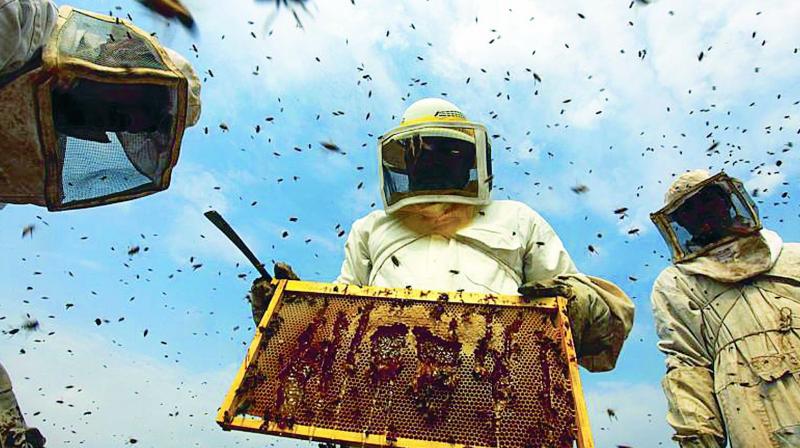Honey heals Colombian war wounds

Chengue, Colombia: Covered from head to toe in a protective suit, Yina Ortiz peers through a veil to check in on her beehive.
It is one of hundreds that form a lifeline for her remote village, helping to heal the wounds of one of the Colombian conflict’s most brutal atrocities.
Rightwing paramilitaries stormed the village in the dead of night and used machetes to hack 27 people to death, accusing them of collaborating with leftist guerrillas.
The attack 18 years ago was one of the worst atrocities. Ortiz survived the attack on Chengue in Montes de Maria. But she lost several family members and close friends.
Now 33, her memories are still clear. “It wasn’t just the streams of blood, it was awful to see so many dead bodies, one of top of the other, there on the ground, and their loved ones picking them up,” Ortiz said.
Over a hundred families fled, leaving behind a ghost village. But nearly two decades later, life has slowly returned to the dusty village, in part because of the lure of bees. A programme initiated by Ortiz and a group of local women helped bring apiculture to Chengue and it hasn’t looked back.
“Thanks to beekeeping, people have united, returned, they enjoy taking care of the bees,” she said, working the handle on a device called a bee smoker to fumigate and calm the swarming bees.
For the past year, the 159 families of Chengue alternate between agricultural work and caring for the 500 hives donated by government and the UN, as part of a collective programme for survivors of armed conflict.

